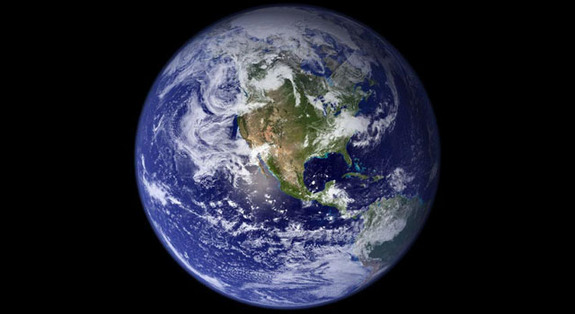What is Earth science?
Earth Science includes geology, meteorology , oceanography and astronomy.

"Earth science" is a broad term that encompasses four main branches of study, each of which is further broken down into more specialized fields.
Geology
Geology is the study of the substances that make up the Earth, the processes that shape it, and of how these materials and processes have changed the Earth over time. Geology is very important as everything we do depends on our relationship to the planet we live on.
Two important subfields of geology are vulcanology (the study of volcanoes), and seismology (the study of earthquakes). Understanding these processes can help enable us to predict and mitigate the effects of natural disasters such as volcanic eruptions, major quakes, tsunamis and landslides. Geologists are also at the forefront of the quest for natural resources such as oil, natural gas, and other raw materials.
Hydrologists study the availability and distribution of the Earth’s freshwater resources including both surface water and aquifers. Physical geography is the study of the Earth’s landforms. Paleontologists are interested in Earth’s history. Geologists may work for industry, government agencies, universities or other settings. Most geologists do field work at least part of the time.
Meteorology
Meteorology is the study of Earth’s atmosphere and how changes in temperature, air pressure, humidity and winds affect the weather. Perhaps more than any other science, meteorology is concerned with using data to make predictions of future events.
Broadcast meteorologists are probably the most familiar; men and women who interpret and report weather data on television or radio to inform the public and protect us when severe weather threatens. Forensic meteorologists often work for lawyers or insurance agencies. Their job is to determine how weather conditions may have contributed to accidents or caused damage to property.
Climatologists study the large-scale weather patterns for a given region over long periods of time. Meteorologists and climatologists work closely with other scientists to determine the possible effects of global climate change and whether human activities are affecting global temperatures.
Get the world’s most fascinating discoveries delivered straight to your inbox.
Oceanography
Oceanography, or marine science, is the interdisciplinary study of the sea. Oceanographers may study currents, storms or waves. Oceanographers may use sophisticated technology to map the ocean floor or evaluate whether movement of subsea tectonic plates might cause rifting and tsunami waves. Oceanographers are frequently biologists who seek to understand and protect marine ecosystems.
It is said that we know more about the surface of the moon than we do about the oceans of our own world. Earth has more oceans than land environments, and the seas may hold the keys to energy and food resources. We desperately need more information to protect the oceans while we are using them for our own survival. Oceanographers may work for governments, for the fishing or energy industries, or shipping concerns. Most oceanographers travel a lot and should enjoy working on the water.
Related: Photos: Hawaii's New Underwater Volcano
Astronomy
Astronomy is the study of Earth’s neighbors in the solar system and beyond. Optical astronomy is direct observation of the visible universe using a variety of telescopes and visual probes such as the Hubble Space Telescope. Radio astronomy can detect radiation from wavelengths well beyond the visible spectrum, but they must also have enormous "dishes" to collect the radio waves. In the past these size limitations made the enormous radio telescopes cumbersome and difficult to aim. Today with the modern ability to link radio telescopes almost instantly by using computer technology, there are many more applications for this science. Astronomers are making discoveries about the size, composition, energy and evolution of distant stars and galaxies.
Planetologists study the planets of our solar system and beyond. Space probes send photos and data from distant systems. In our own solar system the robot probe Curiosity crawls the surface of Mars to analyze soil samples and transmit data to Earth. Cosmologists seek to understand the origin of the universe. Most astronomers work for government space agencies or universities.
The Earth sciences, studying the impact that humans have on the Earth and how natural processes affect us, provide vital information for our future as a species. Our future depends on understanding how the Earth can provide food, water and energy for our growing population. Perhaps one day we will be able to apply these lessons to inhabit another planet as well.
Originally published on Live Science.
 Live Science Plus
Live Science Plus





